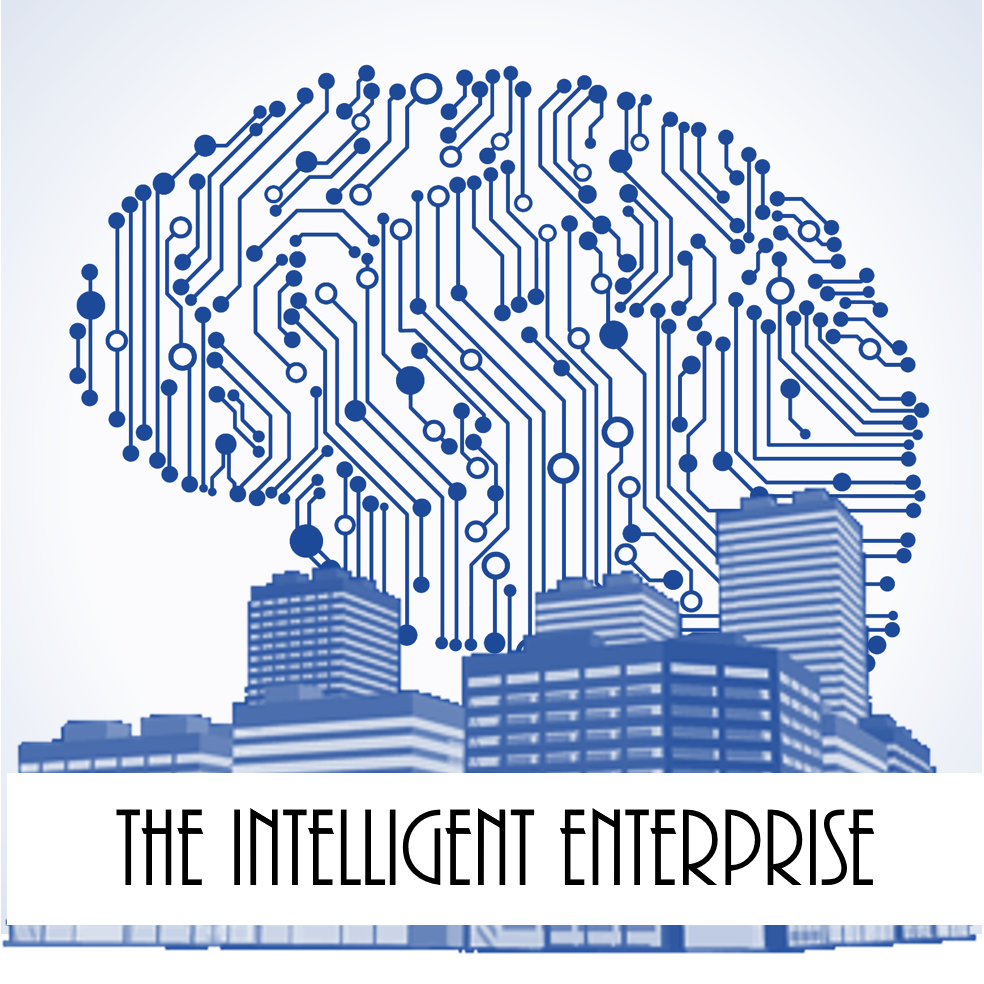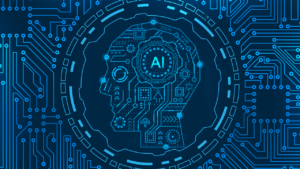Artificial intelligence (AI) technologies are maturing rapidly. Most of the progress has been made in the field of narrow (or weak) AI — that is, AI developed to handle specific challenges, like playing games or improving business processes. This rapid maturation prompted Boston Consulting Group (BCG) analysts, Philipp Gerbert, Jan Justus, and Martin Hecker, to ask, “How can business leaders harness AI to take advantage of the specific strengths of man and machine?”[1] Philosophical debate continues about whether narrow AI should really be called “intelligent” or “cognitive.” It’s a debate that will likely never end. Brad Allenby, a Lincoln professor of engineering and ethics at Arizona State University, notes, “Most of the critical terms for purposes of understanding intelligence cannot be rigorously defined. We may use words such as intelligence, self, consciousness, think, and free will every day in casual speech, but they are certainly not well enough understood to be useful in answering even simple queries.”[2] Many experts believe the debate is meaningless. What matters, they insist, is whether AI works for the job it was created to do. The rise of narrow artificial intelligence was fostered by the explosion of data on which it could train. Big data and AI have a symbiotic relationship. Jamie Carter (@jamieacarter) explains, “It’s no good just having data — it’s what you do with it that counts. [By 2020], one million new devices will come online every hour, creating billions of new interconnections and relationships, and producing more and more data. But these relationships will not be driven by data, but by algorithms.”[3]
The Rise of Artificial Intelligence
Matt Bencke (@bencke), former CEO of Mighty AI, writes, “Artificial intelligence is changing at a breathtaking pace the way we interact with our devices, friends and data. It promises to revolutionize how we work, shop, socialize, date, bank, heal, navigate … how we live.”[4] Bencke is frustrated a more honest picture of AI isn’t depicted in the media. “We highlight the highs (AlphaGo beats world champion!) and lambast the lows (Chatbot Tay turns racist and hateful!), while brushing off smaller (but meaningful) advances. We keep giving air time to robot-takeover fears, while failing to evangelize and thus guide the real value of AI today.” He continues:
“A broad array of companies are quietly innovating on top of AI technologies — and integrating the resulting innovations into services today. Their models are showing us the right products, … serving smarter ads, … organizing our content, … guiding investments, … talking to us in the words we understand … and more. … Over time, their incremental progress will revolutionize technology.”
Mark Minevich (@MMinevich), author and visionary in the fields of digitization and artificial intelligence, agrees with Bencke’s perspective. “AI is poised to transform business solutions across a wide variety of sectors in more ways than you can imagine,” Minevich asserts. “The digital solutions economy empowered by AI is the new business model of the future. AI is, and will continue to be, adopted by enterprises, allowing organizations to extract knowledge from all the data that is currently being generated.”[5] Jim Barnett, CEO of Glint, adds, “Not only will it streamline work and boost productivity, AI will transform corporate America. Businesses that fail to keep up with the rapid digital transformation will be left behind.”[6]
Artificial Intelligence and the Intelligent Enterprise
As Barnett implies, digital transformation involves more than just generating and analyzing data. Gerbert, Justus, and Hecker add, “In simpler times, a technology tool, such as Walmart’s logistics tracking system in the 1980s, could serve as a source of advantage. AI is different. The naked algorithms themselves are unlikely to provide an edge. … Rather than scrap traditional sources of competitive advantage, such as position and capability, AI reframes them.” They offer three examples of how AI shifts traditional notions of competitive advantage. Those examples are:
- Data. “AI’s strongest applications are data-hungry. … Not all companies can realistically aspire to be Facebook, Google, or Uber. But they do not need to. By building, accessing, and leveraging shared, rented, or complementary data sets, even if that means collaborating with competitors, companies can complement their proprietary assets to create their own privileged zone. Sharing is not a dirty word. The key is to build an unassailable and advantaged collection of open and closed data sources.”
- Customer Access. “AI also changes the parameters of customer access. Well-placed physical stores and high-traffic online outlets give way to customer insights generated through AI. Major retailers, for example, can run loyalty, point-of-sale, weather, and location data through their AI engines to create personalized marketing and promotion offers.”
- Capabilities. “Capabilities traditionally have been segmented into discrete sources of advantage, such as knowledge, skills, and processes. AI-driven automation merges these areas in a continual cycle of execution, exploration, and learning. As an algorithm incorporates more data, the quality of its output improves. … Algorithms learn from experience, allowing companies to merge the broad and fast exploration of new opportunities with the exploitation of known ones. This helps companies thrive under conditions of high uncertainty and rapid change.”
Vala Afshar (@ValaAfshar), the Chief Digital Evangelist for Salesforce, notes Accenture’s Technology Vision 2017 report concludes, “Artificial intelligence is coming of age, tackling problems both big and small by making interactions simple and smart.”[7] Tackling problems often involves better decision making. Bain analysts, Michael C. Mankins and Lori Sherer (@lorisherer) insist decision making is one of the most important aspects of any business. “The best way to understand any company’s operations,” they write, “is to view them as a series of decisions.”[8] Byron Reese (@byronreese), CEO & publisher of Gigaom, told Afshar, “The power of AI is the power to make better decisions. It is the ability to analyze data, learn and gain new insights in order to make better decisions.” Paul J.H. Schoemaker, Founder and Executive Chairman of Decision Strategies International, and Philip E. Tetlock (@PTetlock), the Annenberg University Professor at the University of Pennsylvania, write, “In coming years, the most intelligent organizations will need to blend technology-enabled insights with a sophisticated understanding of human judgment, reasoning, and choice. Those that do this successfully will have an advantage over their rivals.”[9]
Summary
Implicit in the discussion about intelligent enterprises is the requirement for close collaboration between humans and AI. Gerbert, Justus, and Hecker are more explicit. They conclude, “Only when humans and machines solve problems together — and learn from each other — can the full potential of AI be achieved.” Although I agree with that sentiment, I would have stated, that human/machine collaboration is the only way an intelligent enterprise can reach its full potential. From process automation to better decision-making, artificial intelligence has a role to play in transforming companies into intelligent enterprises.
Footnotes
[1] Philipp Gerbert, Jan Justus, and Martin Hecker, “Competing in the Age of Artificial Intelligence,” BCG Henderson Institute, 16 January 2017.
[2] Brad Allenby, “The Wrong Cognitive Measuring Stick,” Slate, 11 April 2016.
[3] Jamie Carter, “Forget big data – it’s time for big algorithms to change the world,” Techradar, 27 December 2015.
[4] Matt Bencke, “Setting the AI record straight (for now),” TechCrunch, 8 September 2016.
[5] Justine Brown, “How AI will transform corporate America in 2017,” CIO Dive, 14 December 2016.
[6] Ibid.
[7] Vala Afshar, “The Power of Artificial Intelligence is to Make Better Decisions,” Huffpost, 28 January 2017.
[8] Michael C. Mankins and Lori Sherer, “Creating value through advanced analytics,” Bain Brief, 11 February 2015.
[9] Paul J.H. Schoemaker and Philip E. Tetlock, “Building a More Intelligent Enterprise,” MIT Sloan Management Review, 13 March 2017.





